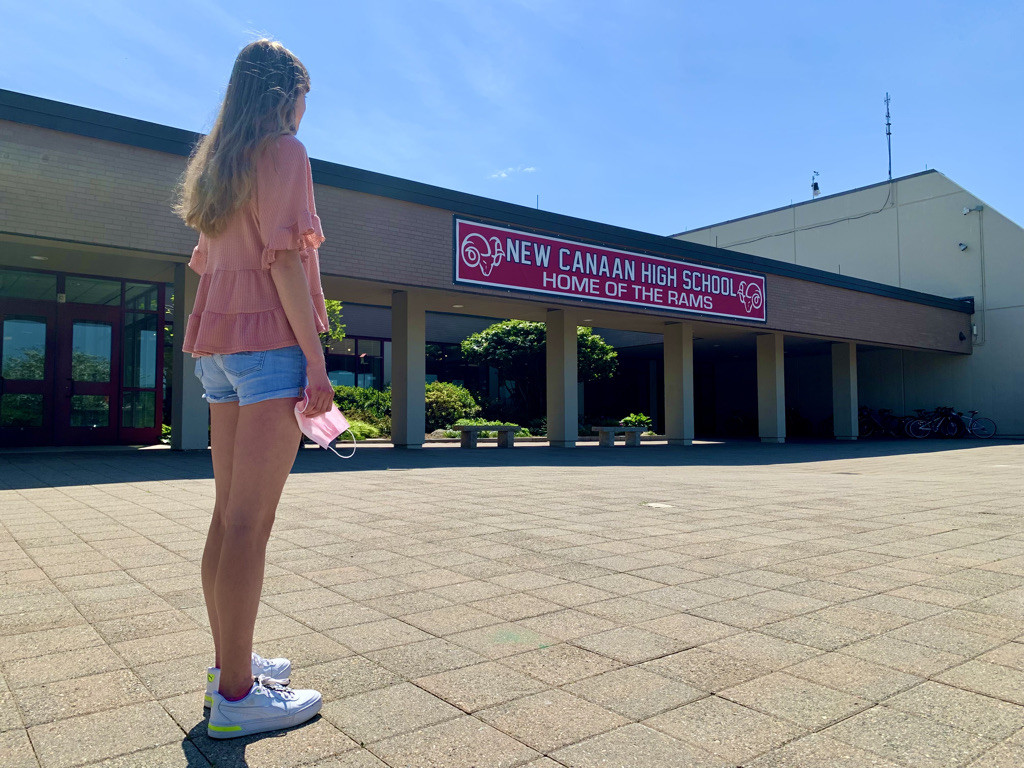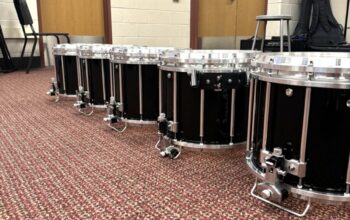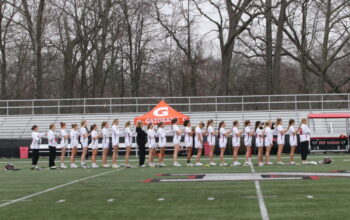Abigail Cushman, Centerfold/Special Projects Editor
@abigailccourant
As the school year comes to a close, school administrators are starting to look at which of this year’s Covid-19 related implementations will carry on to the 2021-2022 school year. The upcoming summer vaccination numbers, levels of community spread, and leading indicators will also play a key role in informing these decisions.
Superintendent of Schools Doctor Bryan Luizzi sees the high level of vaccinations in the town and school as a reason to have hope. “For our 16 through 18 year olds there was a great uptake in the vaccine clinics, and hopefully those that are hanging out will go and get vaccinated too. We also created a clinic for 12 year olds and over. That filled within 24 hours – 860 spots,” he said.
Dr. Luizzi is talking to people now about how school next year can be different for students and others who have been vaccinated. “Whether it’s wearing masks less often, or at different times, or having more opportunities to take them off, we’re going to figure that all out and find a way to be sure we keep balancing safety and access,” he said.
Student vaccinations could allow the school to reimplement traditions that Covid-19 prevented this year. “I definitely see us finding ways to bring more and more back. If we have some dances and pep rallies next year, students might either be vaccinated or they’d have to take a test leading up to the dance,” Dr. Luizzi said.
According to Assistant Principal Ari Rothman, prom and graduation were able to happen this year thanks to the downward trend in Covid-19 based numbers. If those trends continue, even more school activities should be able to happen next year. “The goal is, and the goal has always been, even last spring, to try and do whatever we typically do,” he said.
In terms of student connections within the classroom, administrators expect that social distancing will continue to be necessary in some capacity, but desk layouts will be more collaborative. Dr. Luizzi anticipates that science labs will be able to happen more traditionally and students will be able to work together at tables. “I believe that classroom setup and structure is really important. When I was a high school teacher and I taught English up in Newtown, everyday I put my desks in a circle,” Dr. Luizzi said. “Thinking about what it must be like not being able to do that, I realize it’s challenging for a lot of people.”
Multiple members of the student body have expressed their hope that there will also be more freedom within the cafeteria next year. “Lunch barriers in the cafeteria ruin the energy of the environment and keep students away from going to the cafeteria for lunch. The lunch block is a time when students look forward to relaxing and interacting with their friends, and due to the covid regulations, which I understand, this energy disappeared,” junior Rachel Pyne said. While masks will almost definitely be a requirement at the beginning of next year, all school community members will still be encouraged to take their masks off outdoors and to eat outdoors.
As for indoors, Mr. Rothman says that the use of plexiglass barriers at lunch tables will have to be based on state health guidelines and the number of people vaccinated. “You have to prepare for what is the most restrictive; then it’s always easy to cut back,” he said. Dr. Luizzi is optimistic that if the plexiglass is there when school starts next year, it will be gone before school ends.
Many student voices have also expressed strong opinions about what they hope school scheduling will look like in the future. While junior Erica Mandel hopes that the school will return to the 45 minute class scheduling, freshman Ethan Schubert hopes that block scheduling will continue. “One of the impacts of Covid-19 in schools is that it accelerated some work that was already underway,” Dr. Luizzi said. The high school had been looking at making a change in its schedule but, according to Dr. Luizzi, was probably a full year out as far as communication and training.
However, because of block scheduling’s success during the 2020 school year it was put in place this year. “I think that asking students to prepare for three or four classes a day versus all of them every day makes a difference. There are strategies that people can learn to use the block schedule well,” Dr. Luizzi said.
In order to avoid oversaturating students with material during one eighty-five minute class, teachers will be expected to allow for breaks within the block period, regardless of the situation with masks. “People are looking at what is more important in the curriculum – depth of coverage versus breadth of coverage,” Mr. Rothman said.
Discussions about next year’s schedule are ongoing. According to Mr. Rothman, during professional learning on these Wednesday half days teachers have been working specifically on adapting and improving the curriculum and instruction within a block schedule. “That’s ongoing work over the summer and into next year,” he said.
A resounding amount of the student body has expressed a desire for these half days to continue. According to sophomore Victoria Lockhart, the half days relieve a lot of stress. Freshman Thomas Crehan thinks these days are nice given that he can catch up on work and rest a little bit. “Half days create a break for the students and allow for meeting times with teachers and more time to stay on top of your work, reducing stress,” junior Rachel Pyne said.
Despite such positive response, administrators do not see weekly half days continuing into next year. “They won’t be weekly, but there will definitely be some days that we look at doing early dismissals so that teachers can gain new skills and continue to grow their practice in whatever is most important,” Dr. Luizzi said. “They might be twice a month instead, and we’re looking at that now.”
In this ongoing conversation about next year’s schedules, administrators are also looking at moving the high school start time to around 8:30. “My understanding is it’s very much on the table and in the works, not just in the discussion but actually being implemented,” Mr. Rothman said.
Change in start time would have happened this year, had it not been for Covid-19. “It is more sleep, better health, and that I think will really change the experience of being a student, and really make it better,” Dr. Luizzi said. A change in start time would not happen right at the beginning of the 2021-2022 school year.
The general consensus is that next year will depend largely on how the virus is managed over the summer. “The toughest part for everybody is you hope things loosen up, but you do have to prepare in the event that they don’t,” Mr. Rothman said.
This year has been an opportunity to learn about how to reopen safely, while actively managing and mitigating the virus. “I’m so impressed, thankful, and proud of the way our students have stepped up to do the right things – to wear their masks in school and to follow the strategies,” Dr. Luizzi said. “I know it’s been hard, but it’s the cumulative effects of our collective action that’s going to determine how well we do.”




